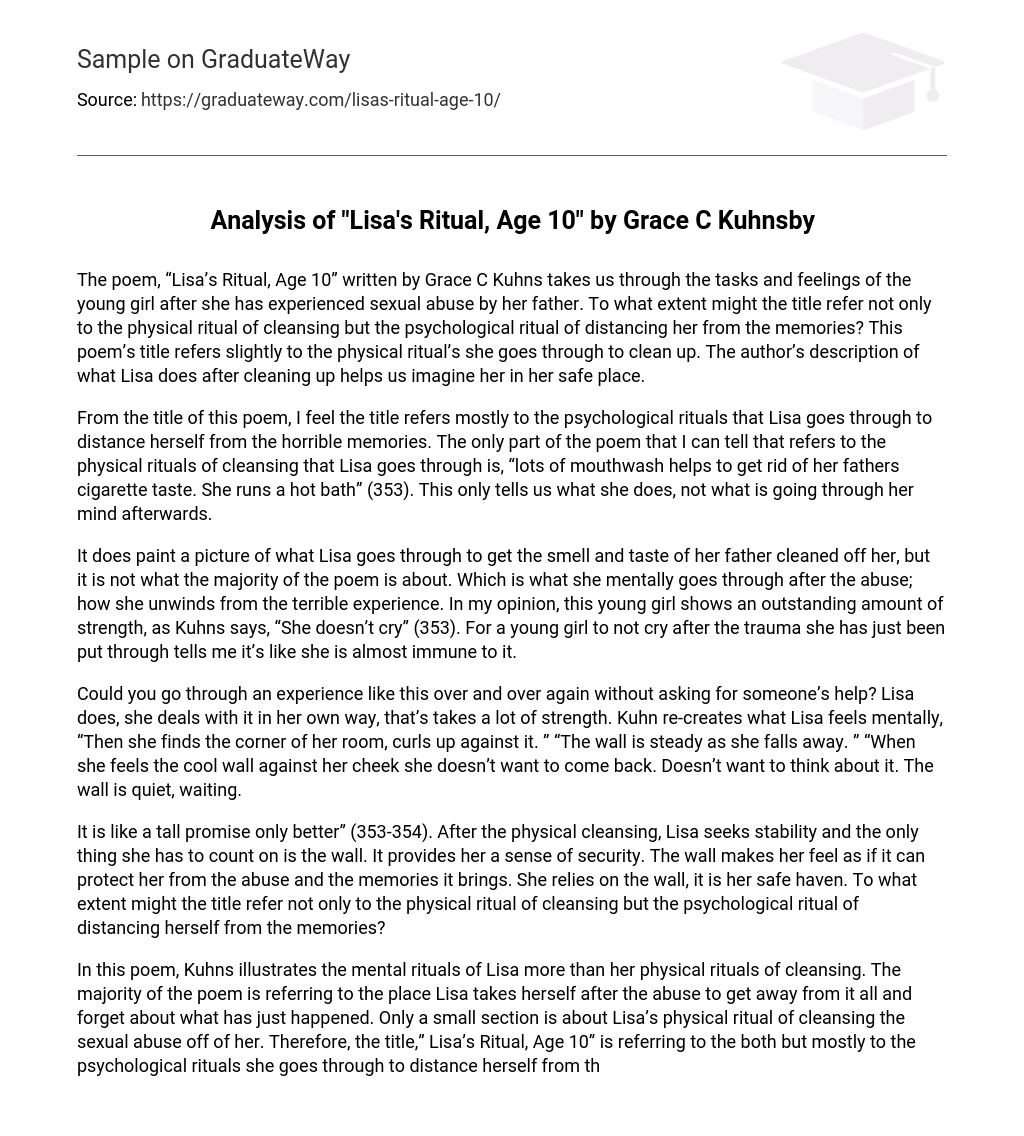In the poem “Lisa’s Ritual, Age 10,” Grace C Kuhns depicts the actions and emotions of a young girl who has suffered sexual abuse from her father. The title suggests that the ritual mentioned not only involves cleansing but also serves as a psychological method of distancing herself from the traumatic memories. This poem emphasizes the physical tasks undertaken by Lisa to cleanse herself. Additionally, the author’s portrayal of Lisa’s post-cleansing actions enables us to envision her seeking solace in her safe space.
Based on the poem’s title, it seems that the title primarily addresses the psychological rituals that Lisa undertakes to detach herself from distressing memories. The only section of the poem that directly discusses Lisa’s physical cleansing rituals is the line, “lots of mouthwash helps to get rid of her father’s cigarette taste. She runs a hot bath” (353). This line merely outlines her actions and does not reveal her subsequent thoughts and emotions.
The poem provides insight into Lisa’s efforts to remove the scent and flavor of her father, but the main focus is on her psychological journey after the abuse. It showcases how she copes with and recovers from the horrific experience. I believe this young girl displays remarkable strength, as Kuhns notes that she does not shed any tears. It suggests that she may have developed a certain immunity towards the trauma she has just endured.
Could you endure a repetitive experience like this without seeking assistance? Lisa manages to do so in her own way, displaying immense strength. Kuhn vividly describes Lisa’s mental state, as she finds solace in the corner of her room, curling up against it. The wall provides a stable support as she gradually dissociates. When the cool surface touches her cheek, Lisa resists returning to reality and thinking about her situation. The wall remains calmly present, patiently waiting for her.
“It is like a tall promise only better” (353-354). Following the physical cleansing, Lisa finds solace in the wall, which grants her a sense of stability and security. The wall becomes her sanctuary, offering protection from the abuse and the memories associated with it. Could the title also allude to the psychological ritual of distancing herself from these memories, in addition to the physical act of cleansing?
In this poem, Kuhns explores the psychological rituals of Lisa rather than her physical rituals of cleansing. The poem primarily focuses on the place Lisa retreats to after the abuse, where she can escape and momentarily forget about the traumatic experience. Although a small section touches upon Lisa’s physical ritual of cleansing herself from the abuse, the title “Lisa’s Ritual, Age 10” encompasses both aspects, but primarily highlights the psychological rituals she undergoes to distance herself from the haunting memories.





